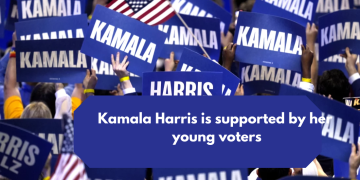Recent debates have been fueled on mpox vaccines as it is yet to arrive in Africa. Africa is battling mpox for decades. GAVI (vaccine alliance) is planning to buy vaccines doses from the United States and Japan for the low-income countries. However, they are still unable due to slow approval process by the World Health Organization (WHO), Reuters confirmed.
Understanding Mpox
Mpox is a form of regular pox that causes symptoms similar to flu and pus-filled lesions but can be potentially deadly. It is contagious through physical contact so spread is rapid and concerning for populated countries like in Africa.
On August 14, WHO has declared this virus as “global health emergency” for international attention. The new strain named Clade IB is escalating fast in Democratic Republic of Congo and some other countries in Africa. The symptoms also include fever, sore throat, muscle aches, skin and back pain.
Late Arrival of Vaccinations
Partners of WHO i.e. GAVI and UNICEF have been awaiting approval from WHO for purchasing mpox vaccines. Though, WHO has only recently asked for information from the manufacturers. Denmark’s Bavarina Nordic and Japan’s KM Biologics are already in the market selling mpox vaccines since 2022. WHO is now expected to grant an urgent license to these shots within September.
WHO is trying fix this late action by prioritizing over access. In a statement, WHO convenes that “urging all partners including countries, manufacturers and communities to mobilize efforts, increase vaccine donations, reduce prices and provide other necessary support to protect people from this outbreak ”.
Critiques still have questioned the priorities of the global medical agencies like WHO. A spokesperson GAVI says, getting the doses into the countries is their first priority right now. He did not agree to comment on the ongoing negotiations with WHO at this moment. Unofficial sources from the USA have confirmed donations of 50,000 doses for Congo by USA. Nonetheless, no announcement came from the government yet.
Concerns over Slow Approval
Unfortunately, the situation right now is not conductive to wait for approval as scenario in Africa is worsening. Bavarian Nordic, one of the vaccine manufacturers, is careful not to repeat COVID-19 situation when low-income countries were left behind in supplies. Many related officials claimed that WHO could have started the process two years ago. As lower income countries often heavily rely on the partner agencies of WHO for easier access to huge quantities of vaccine, the process is bit slow.
Initiatives by WHO to speed up the Process
WHO, however, tries to explain the complexity of the process. A representative of this UN health agency said that it could not manage sufficient data during 2022 mpox emergency required for approving the vaccines for other countries. To speed up the vaccine administering process, WHO is now creating collaboration with the affected countries. It is planning to conduct assessments on quick readiness to identify and reduce capacity gaps. This is aimed to ensure timely treatment to those infected, said by Samuel Boland, mpox incident manager with the WHO in Africa.
WHO also said that they are now working with Congo authorities to design a vaccination plan ready to implement once emergency approval is done. Chief executive of GAVI, Sania Nishtar convenes this wait for approval as a “learning moment” for global health care.
Simultaneously, WHO is discussing to relax the approval policies for their partner organizations to get the negotiation for purchasing doses on board between the agencies and manufacturers. Along with that, combined efforts should be mobilized to promote equity in global health. Increasing health initiatives and transferring knowledge and practices to the lower-income countries another important initiative to be taken for.
Local capacity constraints in a Crisis Zone
Congo has been a rising spot so far for mpox with 27,000 suspected cases and 1,100 deaths since January 2023. Surprisingly, Nigeria is the first country to receive the first 10,000 doses which is due in the last week of August. Nigeria has had 786 suspected cases with no deaths. Conflict torn Congo has a weaker government systems comparing to Nigeria.
“The treatment facilities in Congo is already weakened by Ebola and COVID-19, we are struggling to limit another outbreak now”, a street seller named Murhula (26) talked to Al Jazeera about the situation. Doctors Without Borders, a medical NGO states that ongoing conflict in that country is going to negatively impact the disease response.
So far, no treatment is available yet to treat the cases. Doctors, therefore, had to adopt a procedure of treating the symptoms to ease the extent of the disease. Maguru, doctor of North Kivu Provincial Hospital, provides a scene saying that symptoms are treated with different medicines due to the unavailability of the vaccine drug. “Fiver is treated with paracetamols, while skin issues are treated by dermatologist”, Maguru says. Even then, basic remedies like this are not enough to treat such a high number of patients. Sometimes they are stock out as well.
Call for Action Globally and Locally
Mpox vaccines are widely used in more than 70 countries and treated already 1.2 million people. In contrary, African countries are still surviving on local medicines to tackle this disease. Prominent public health officials highlight the inequity in global medical healthcare despite the lessons learned from COVID-19 pandemic. World leaders need to act on this swiftly. A long-term strategy enriched with lessons and programs designed, implemented during COVID-19 should be in place. This will help to identify and respond quickly to any potential outbreak like mpox.
Africa Centres for Disease Control and Prevention (CDCP) has stated that the infected area is in need of million doses. Yet, only some donations are ensured so far. The shots are yet to arrive at the hospitals, the center remarks. CDC is requesting the rich and manufacturing countries to donate doses. Demand for supplies for vaccines is alarmingly high already.




















